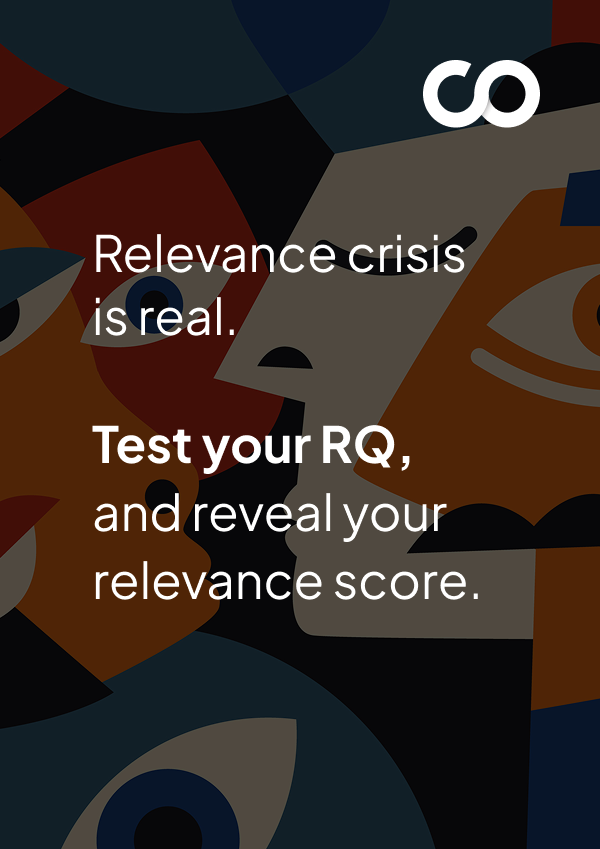travel technology providers
Travel Technology Solutions and Services

Your Travelers Book Like It's 2025. Your Platform Shouldn’t Run Like It's 2015.
The online travel market hit 640 billion USD in 2024, with 70% of all bookings happening through digital channels. Modern travel demands technology that keeps pace with modern travelers’ expectations.
Travelers compare every experience to their best digital interaction, whether that’s retail, banking, or entertainment. They expect personalized recommendations, instant confirmations, and frictionless payments.
Legacy systems weren’t built for this level of sophistication. The result is abandoned bookings, operational inefficiency, and competitive disadvantage.
The solution isn’t patching old infrastructure. It’s building platforms that handle complex travel operations while delivering consumer-grade experiences.
That means integrated booking engines connecting multiple GDS platforms, AI-powered recommendation systems that understand traveler preferences, and payment infrastructure that works across currencies and regulations. The technology exists. The question is implementation.
At Codewave, we develop travel technology for enterprises that need both power and polish. Our solutions span the complete journey from trip inspiration through post-travel engagement, built on cloud architecture using tools like AWS, Google Cloud, React Native, and TensorFlow.
We handle dynamic inventory management, predictive analytics, real-time pricing engines, and cross-platform integrations that actually work under peak load conditions.

The Outcome of Our Solutions:
3X faster delivery
30% reduced cost
100% QA coverage
Download The Master Guide For Building Delightful, Sticky Apps In 2025.
Build your app like a PRO. Nail everything from that first lightbulb moment to the first million.
Solving Tomorrow’s Travel Tech Challenges Today
At Codewave, we build solutions designed to address the unique challenges in the travel and hospitality sector. Whether it’s optimizing your booking systems, enhancing customer personalization, or managing complex inventories, we offer targeted solutions that ensure smooth, scalable, and engaging experiences for both travelers and businesses.
Fragmented booking experiences force travelers to juggle multiple tabs and re-enter information across different systems. When flights, hotels, and activities live on separate platforms, completion rates drop and operational complexity increases.
We build unified booking systems on cloud infrastructure using React and Node.js that integrate flights, accommodations, transfers, and experiences into single-flow transactions. Dynamic search surfaces relevant options based on budget, dates, and preferences with real-time inventory syncing across all channels.
Example: If a traveler searches for a beach vacation, we’ll build a platform where they instantly see flight options, beachfront hotels with availability, and local experiences like snorkeling tours, all bookable in one transaction. The system will validate each component against real-time supplier availability and calculate total pricing with a single checkout flow.
Most travel platforms treat every visitor identically, missing opportunities for relevant engagement. Without understanding preferences, platforms show irrelevant options that waste time and reduce booking likelihood.
We develop profiling systems using machine learning that track interaction patterns across your digital properties and build comprehensive traveler profiles. The system identifies preference signals from browsing behavior and adapts recommendations automatically without intrusive data collection.
Example: If a user previously booked mountain hiking trips, we’ll build a system that recognizes their profile upon return and prioritizes adventure destinations, outdoor activities, and hotels near trailheads rather than beach resorts or city tours. No preference forms needed. The platform will learn from behavior.
Generic package tours frustrate modern travelers who want control over their itinerary. Static packages can’t accommodate personal preferences, special requests, or schedule adjustments without manual intervention from your team.
We create customization platforms that let travelers modify itineraries, swap components, and adjust schedules while the system validates changes against supplier availability in real-time. Pricing recalculates instantly, and all modifications meet your business rules automatically.
Example: If a traveler likes your 7-day Italy package but wants an extra day in Florence and to skip Rome, we’ll build a system where they can easily drag the timeline. Instantly, they’ll see hotel availability in Florence, with adjusted bookings for Rome. The system will also recalculate pricing, including any change fees, and confirm that the new itinerary is operationally feasible.
Complex checkout processes kill conversions. When travelers face 8-step booking forms with redundant questions, many abandon before payment. Research shows simplifying checkout can improve completion rates by 35%.
We redesign booking flows to minimize steps, eliminate redundant information requests, and provide clear progress indicators. Smart form fields auto-populate known information, payment options appear based on transaction context, and confirmation happens within seconds.
Example: If a returning user starts booking a flight, we’ll build forms that pre-fill passport details, frequent flyer numbers, and payment information from their profile. They’ll review dates, select seats on an interactive map, click confirm, and receive instant booking confirmation. Total time under 90 seconds.
Manual inventory updates across multiple channels create overbooking risks and pricing inconsistencies. Static pricing misses revenue opportunities during high-demand periods and leaves inventory unsold during slow seasons.
We build systems using AWS and real-time databases that sync inventory across all distribution channels instantly and adjust pricing based on demand patterns and competitor positioning. Machine learning algorithms factor in seasonality, booking lead time, and inventory levels to prevent overbooking through automated allocation rules.
Example: If your Bali resort has 50 rooms, we’ll build a system that detects booking velocity increasing during peak season and automatically raises rates by 15%. When a room sells on your website, inventory will decrement across all OTAs simultaneously. As departure approaches, unsold rooms will trigger promotional pricing to maximize occupancy.
Limited payment options and clunky checkout create friction at the critical conversion moment. When travelers can’t use their preferred payment method or split costs with travel companions, bookings fail.
We integrate payment infrastructure supporting 100+ currencies, local payment methods like Alipay and UPI, and split payment scenarios. The system handles fraud detection, PCI compliance, and instant refund processing with detailed transaction records.
Example: If a family of four books a vacation, we’ll build a payment system where one person pays 60% with a credit card and another covers 40% via PayPal. The system will process both simultaneously, validate fraud checks, convert currencies if needed, and send separate receipts. Refunds will route back to the original payment methods automatically within 24 hours.
Travel booking happens across devices, but inconsistent performance between desktop and mobile drives users away. Slow load times in international markets frustrate global travelers.
We develop applications using cloud architecture that scales automatically with traffic, edge computing via Cloudflare that reduces latency globally, and progressive web app technology that works offline. Mobile apps built with React Native sync seamlessly with web platforms.
Example: If a traveler starts booking on a desktop at work, we’ll build a system where they save progress and complete checkout on their phone during their commute. The app will load in under 2 seconds, even with spotty subway wifi, pulling cached data. Their selected flights, hotel, and payment info will sync perfectly across devices with zero re-entry.
Historical booking data sits unused while decisions rely on gut instinct. Without understanding demand patterns, inventory allocation, and marketing spend miss their targets.
We build analytics platforms using TensorFlow and Python that predict demand fluctuations, identify high-value traveler segments, and recommend inventory allocation strategies. Machine learning models surface insights about emerging travel trends and optimize recommendation accuracy over time.
Example: If you need to plan inventory for next fall, we’ll build a system that analyzes two years of booking data and predicts that September will see 40% higher demand for Japan trips due to fall foliage.
It will recommend increasing inventory allocation, suggest raising prices 3 weeks before the typical booking window, and identify which marketing channels drove similar bookings previously.
Disconnected systems force staff to manually update availability across platforms. Without GDS connectivity, accessing global inventory requires maintaining dozens of individual supplier relationships.
We develop integration layers connecting your platform to Amadeus, Sabre, Travelport, and specialty booking systems. API middleware handles data transformation, manages connection stability, and provides fallback options when primary systems experience downtime.
Example: If a corporate travel manager searches your platform for London flights, we’ll build integrations that query Amadeus, Sabre, and direct airline APIs simultaneously, normalize results into a consistent format, apply corporate discount codes, and display all options within 3 seconds. When they book, the reservation will be confirmed across all systems automatically.
Generic email blasts achieve disappointing click rates because they lack relevance. Without behavioral triggers, marketing teams can’t reach travelers at high-intent moments.
We create marketing automation using SendGrid and customer data platforms that trigger personalized emails based on browsing behavior, send booking reminders with dynamic pricing, and re-engage abandoned carts with relevant incentives. Campaign performance tracking shows which messages drive conversions.
Example: If a user browses Maldives resorts but doesn’t book, we’ll build automation that sends them an email six hours later showing the exact resorts they viewed with updated pricing and “only 3 rooms left” messaging. If they still don’t convert, we’ll trigger a follow-up offering a 10% discount valid for 48 hours, personalized with their name and viewed properties.
Booking ground transportation separately from travel itineraries creates friction and increases no-show rates. Travelers want complete door-to-door journey planning in one place.
We integrate ride-sharing APIs from Uber and Lyft, rental car systems from Hertz and Enterprise, and private transfer services directly into booking flows. Real-time vehicle availability, pricing comparison across providers, and booking confirmation happen without leaving your platform.
Example: If a traveler books a flight landing at 10 PM, we’ll build a confirmation page that instantly shows three ground transportation options: airport shuttle for $25, Uber estimate of $45 to $60, or rental car for $40 per day. They’ll select the shuttle, book it with two clicks, and receive a QR code for pickup. All part of their complete itinerary.
Legacy systems accumulated through acquisitions create data silos where customer information doesn’t sync between platforms. This forces manual work, creates inconsistent user experiences, and prevents implementing modern features.
We assess existing infrastructure, identify integration opportunities, and design migration paths that modernize technology without business disruption. The roadmap balances quick wins with long-term architectural improvements, providing clear timelines and ROI projections.
Example: If your platform runs on three separate systems from past acquisitions, where one handles bookings, another manages customer data, and a third processes payments, we’ll map data flows, design an API layer connecting all three, migrate to a microservices architecture gradually, and consolidate customer profiles into unified records. All while bookings continue uninterrupted.
Simplify Travel Operations with Intelligent, Scalable Tech
The difference between travel platforms that drive bookings and those that frustrate users comes down to specific technical decisions made during development.
Real-Time Inventory Synchronization
Inventory discrepancies across channels create overbooking nightmares and lost revenue. When a room sells on one platform but remains available on others, you either disappoint customers or leave money on the table.
We build synchronization systems that update inventory across all distribution channels within milliseconds of any booking, cancellation, or modification. The architecture uses event-driven updates and conflict resolution logic to ensure accuracy even during high-traffic periods.
In Action: If a boutique hotel chain operates across Booking.com, Expedia, direct website, and phone reservations, we'll create a central inventory hub where any booking instantly updates availability everywhere. When front desk staff block rooms for maintenance, those rooms disappear from all channels immediately. No manual updates, no overselling, no reconciliation headaches at day's end.
Intelligent Search and Recommendation
Generic search results that ignore user context force travelers to wade through irrelevant options. When someone searching for family-friendly resorts sees adults-only properties, they waste time, and your conversion rate suffers.
We implement machine learning models that factor in search patterns, past bookings, browsing history, and contextual signals like travel dates and party size. The system learns which attributes matter most to different traveler segments and surfaces those options first.
In Action: If a user with two children searches for Hawaii vacations, we'll build search algorithms that prioritize family suites, properties with kids' clubs, and all-inclusive packages. The system will recognize beach preferences from past trips and rank oceanfront options higher. Results appear in order of genuine relevance, not just price or commission structure.
Flexible Pricing Engines
Static pricing models can't respond to market dynamics. When demand spikes or competitors adjust rates, manual price updates lag behind opportunities to optimize revenue or remain competitive.
We develop dynamic pricing systems that monitor booking velocity, competitor rates, seasonality patterns, and inventory levels. Rules-based logic combines with machine learning to suggest or automatically implement pricing adjustments that maximize revenue per available unit.
In Action: If your safari lodge sees booking pace 30% ahead of last year for August departures, we'll build pricing engines that gradually increase rates as inventory decreases.
The system will monitor competitor pricing in real-time, ensure your rates stay within strategic positioning parameters, and create urgency by displaying price increases for specific dates.
Multi-Currency and Payment Flexibility
Payment friction at checkout kills conversions. When international travelers can't pay in their local currency or see unexpected fees, many abandon bookings even after investing time in the selection process.
We integrate payment gateways that support 100+ currencies with real-time exchange rates, local payment methods popular in target markets, and split payment options that let groups divide costs. The system displays prices in the traveler's currency throughout the journey and handles all conversion and settlement on the backend.
In Action: If a Chinese family books a European tour through your platform, we'll build payment flows that display prices in Yuan, accept payment through Alipay or UnionPay, and let multiple family members contribute portions of the total.
The system will handle currency conversion, payment processing fees, and settlement to suppliers in their required currencies. Travelers see transparent pricing, you receive proper settlement, and suppliers get paid correctly.
Cross-Device Booking Continuity
Travelers research on multiple devices before booking. When progress doesn't carry across devices, they restart the entire process or abandon completely rather than re-enter information.
We build systems using cloud session management that save search criteria, selected options, and user inputs continuously. Progress syncs across web and mobile platforms so travelers can seamlessly switch devices at any point in the booking journey.
In Action: If a business traveler starts searching for flights during lunch on a desktop, we'll create architecture where they can pull out their phone on the commute home and see their exact search results, saved flights, and seat preferences already loaded. They complete the booking on mobile in two taps. No re-entering travel dates, no searching again, no lost progress.
Automated Customer Communication
Manual booking confirmations and travel updates don't scale. When staff must send emails for every confirmation, cancellation, or itinerary change, errors occur and response times lag.
We implement automated communication workflows triggered by booking events and travel milestones. Personalized emails include relevant details, contextual upsell opportunities, and dynamic content based on booked services.
In Action: If a traveler books a 10-day tour, we'll build communication sequences that send immediate booking confirmation with a detailed itinerary, pre-trip emails at 30 days and 7 days with packing tips and local information, day-of reminders with weather forecasts and meeting points, and post-trip follow-ups requesting reviews.
Each email pulls live data like flight times and hotel addresses from the booking system. Marketing can insert relevant add-ons like travel insurance or airport transfers based on what's already booked.
Performance Optimization for Global Users
Slow load times are a surefire way to kill conversion rates. For international platforms serving travelers worldwide, latency becomes even more critical.
We architect applications using content delivery networks, edge caching, and image optimization to deliver fast experiences regardless of user location. Database queries optimize for speed, and frontend code loads progressively, so users see content immediately.
In Action: If your platform serves travelers across Europe, Asia, and America, we'll deploy applications across multiple AWS regions with CloudFront distribution. Static assets like images cache at edge locations near users.
Database reads happen from regional replicas. Search results stream progressively, so users see the first options within 1 second, even as the full results continue loading. Pages feel instant from Singapore to Stockholm.
Supplier Portal Integration
Managing supplier relationships through email and spreadsheets creates bottlenecks. When hotels manually send availability updates or tour operators call with price changes, your inventory accuracy and operational efficiency suffer.
We develop supplier portals where partners update their own inventory, pricing, and availability in real-time. The portal includes validation rules to maintain data quality and automatic feeds into your main booking system.
In Action: If you work with 200 accommodation partners across Southeast Asia, we'll build portals where each hotel logs in to update room availability, modify rates for specific dates, upload new photos, and manage seasonal promotions.
Changes appear on your platform within minutes. You'll see which suppliers haven't updated inventory recently and send automated reminders. Suppliers maintain their own content, and you maintain current, accurate information without manual coordination.
Compliance and Data Security
Travel platforms handle sensitive personal information and payment data. Security breaches damage reputation and trigger regulatory penalties under GDPR, PCI-DSS, and regional privacy laws.
We implement security best practices, including encrypted data transmission and storage, PCI-compliant payment handling, role-based access controls, and audit logging. Architecture separates sensitive data from general systems and implements regular security testing.
In Action: If you process bookings from EU travelers, we'll build systems that encrypt personal data at rest and in transit, implement consent management for GDPR compliance, enable travelers to request data deletion, and maintain detailed logs of who accessed what data when.
Payment card numbers never touch your servers directly. Instead, tokenization handles sensitive data through PCI-compliant processors. Regular penetration testing identifies vulnerabilities before they become problems.
Tap into Codewave’s expertise for a free audit today
and see how we can elevate your travel tech.
How We Build Travel Technology That Delivers What’s Promised
Design Thinking Approach
Travel technology that converts starts with understanding your travelers and your operations. We map the complete journey from initial search through post-trip engagement, identifying exactly where friction occurs and opportunities exist. This means interviewing your team, analyzing booking data, observing user behavior, and understanding competitive positioning before writing a single line of code.
The result is a platform built around actual needs rather than assumed requirements. Higher conversion rates, faster booking flows, reduced operational overhead, and systems your team actually wants to use.
Agile Development Methodology
Travel platforms can't wait 18 months for a big-bang launch. Market conditions change, traveler expectations evolve, and competitive pressure demands speed. We work in two-week sprints that deliver functional features you can test with real users immediately.
Each sprint produces working software. You see progress constantly, provide feedback that shapes the next iteration, and can launch core functionality while advanced features continue development.
This approach reduces risk, accelerates time-to-market, and ensures the final product matches current market needs rather than outdated specifications.
Security Practices and Industry Compliance
Travel platforms handle payment data, passport information, and personal details that require rigorous protection. We implement security measures that meet PCI-DSS requirements for payment processing, GDPR standards for European traveler data, and industry best practices for encryption and access control.
Every line of code undergoes a security review. Penetration testing identifies vulnerabilities before launch. Compliance isn't an afterthought added at the end, but a requirement built into architecture from day one. Your platform launches securely and stays secure.
Seamless Integration Architecture
Your travel platform exists within an ecosystem of existing systems. Accounting software, CRM platforms, supplier APIs, marketing tools, and analytics systems all need to communicate. We build integration layers that connect new technology with existing infrastructure without disrupting current operations.
APIs follow industry standards for maintainability. Middleware handles data transformation between systems. Monitoring alerts you to integration issues before they affect customers. Your technology stack works as a unified system rather than disconnected tools.
Transparent Communication Throughout
Building enterprise software involves complexity, but understanding progress shouldn't. We use project management tools like Jira and Slack to maintain visibility into every task, milestone, and decision. You see exactly what's being built, what's coming next, and where attention is needed.
Regular sprint reviews demonstrate working features. Our team connects with yours at key milestones to ensure alignment. Questions get answered quickly, concerns get addressed immediately, and you're never wondering what's happening with your investment.
Ongoing Support and Optimization
Launch day isn't the finish line. Travel platforms require continuous monitoring, performance optimization, and feature enhancement as your business grows and market conditions shift. We provide ongoing support that keeps systems running smoothly and evolving with your needs.
Performance monitoring catches issues before they affect travelers. Regular optimization improves speed and efficiency. Feature enhancements respond to user feedback and competitive dynamics. Your platform stays current, competitive, and reliable.
The Stack That Powers Modern Travel
Technology | What It Does |
React & React Native | Creates responsive web and mobile experiences that work seamlessly across devices. Write once, deploy everywhere. Travelers get consistent booking flows whether they’re on iPhone, Android, or desktop. |
Node.js & Python | Powers backend services that process bookings, manage inventory, and handle complex business logic. Fast, scalable, and perfect for real-time operations that travel platforms demand. |
AWS & Google Cloud | Provides cloud infrastructure that scales automatically with traffic spikes. Your platform handles peak booking seasons without slowdowns, then optimizes costs during quieter periods. |
TensorFlow & Machine Learning | Drives intelligent recommendations, demand forecasting, and dynamic pricing. The system learns from booking patterns to surface relevant options and optimize revenue continuously. |
PostgreSQL & MongoDB | Stores structured booking data and flexible content efficiently. Relational databases handle transactions while document stores manage varied content like itineraries and supplier information. |
Redis & Elasticsearch | Delivers instant search results and caches frequently accessed data. Travelers see results in milliseconds, and the system handles thousands of simultaneous searches without lag. |
Trusted by 300+ Businesses Globally
From venture-backed startups to established enterprises, we’ve built technology that scales. Our work spans travel, hospitality, fintech, and healthcare, delivering solutions that perform under real-world pressure.
A network of excellence. Our partners.
What to expect
What to expect working with us.
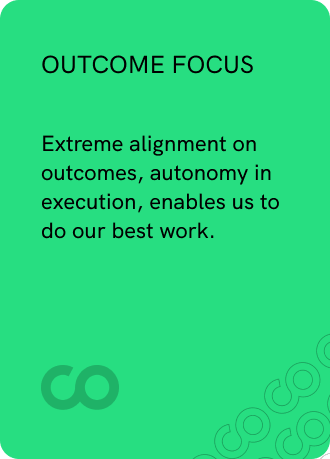
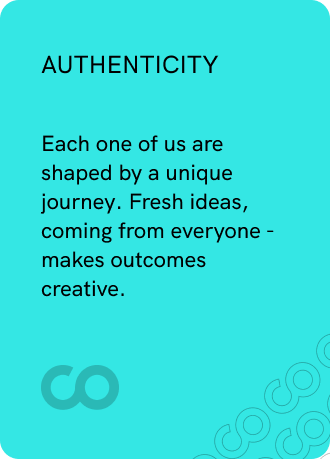
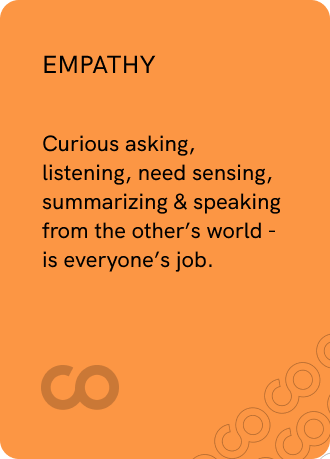
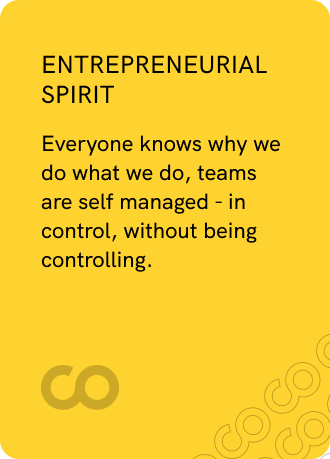
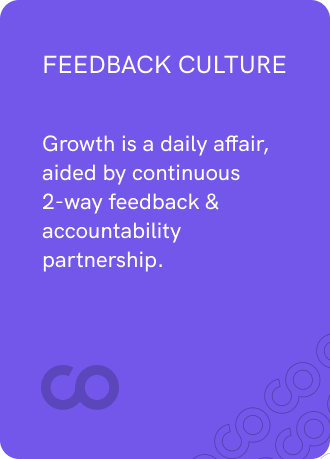
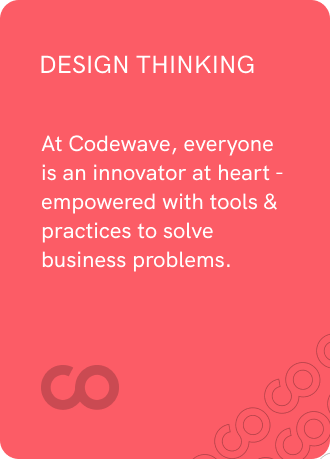
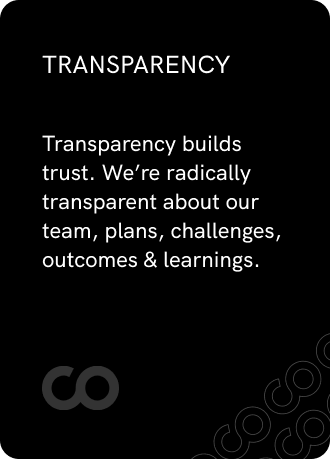
Frequently asked questions
Timeline depends on complexity and feature scope. A basic booking platform with core functionality typically takes 3 to 4 months. Enterprise solutions with multiple integrations, custom features, and advanced analytics range from 6 to 9 months. We work in sprints, so you see working features every two weeks rather than waiting for a final launch.
Yes. Most travel businesses have existing relationships with GDS providers, payment processors, CRM systems, and accounting software. We build integration layers that connect new platforms with current infrastructure. Whether you use Amadeus, Sabre, Salesforce, or custom systems, we create connections that work reliably without disrupting operations.
Launch is the beginning, not the end. We provide ongoing support that includes performance monitoring, bug fixes, security updates, and feature enhancements. You’ll have access to our team for technical questions, optimization recommendations, and scaling guidance as your booking volume grows.
Security is built into the architecture from day one. We implement PCI-DSS compliant payment handling, GDPR-compliant data management for European travelers, encrypted data transmission and storage, and regular security audits. Your platform meets regulatory requirements and protects sensitive traveler information.
We’ve built technology for 300+ businesses across industries, including our own GenAI products. This experience means we anticipate problems before they occur, architect for scale from the start, and deliver solutions that work under real-world conditions. You’re not getting theoretical best practices but proven approaches that handle actual traffic, booking volumes, and operational complexity.































































